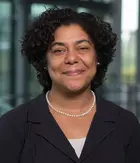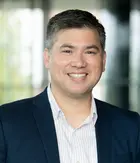Fast-track your leadership journey with our suite of women's leadership programs—designed to transform, inspire, and elevate.
About the Program
What to Expect
- A transformational journey to become a catalyst for change in the business world
- A comprehensive toolkit for personal, team, and organizational success
- The skills to leverage relationships, connections, and interpersonal skills for business growth
- An opportunity to learn from diverse perspectives and forge lasting connections
- A personalized self-development plan
- Interaction with a diverse cohort of ambitious women, and valuable connections and insights
Who Should Attend
- Senior leaders, including professionals in C-suite positions
- Mid-level women managers
- Aspiring leaders seeking to enhance their capabilities
- Individuals advocating for women's leadership development
Agenda
- Section I: Women’s Leadership
- Section II: Women’s Leadership Program: Leading Teams
- Section III: Women’s Leadership Program: Leading With Power and Influence
- Week 1: Values-driven leadership
- Week 2: Self-knowledge and self-mastery
- Week 3: Leading growth through experimentation
- Week 4: Emotionally intelligent feedback
- Week 5: Networks and structures of innovation
- Week 6: Positive leadership
- Week 7: Program break and orientation for Section II
- Week 8: Decision-making for team leaders
- Week 9: Contextual leadership and decision-making for teams
- Week 10: Understanding your network
- Week 11: Leveraging your network
- Week 12: Leadership in the everyday
- Week 13: The future of leadership
- Week 14: Program break and orientation for Section III
- Week 15: Reframing power
- Week 16: Leading with positive energy
- Week 17: Harnessing your power
- Week 18: Navigating structures of power
- Week 19: Growth and power
- Week 20: The power of the changemaker
Faculty
Program Co-Conveners

Emma Seppälä
Lecturer
Areas of Expertise: Positive Leadership, Emotional Intelligence, Well-being, Social Connection
Read the full bio
Emma Seppälä, Ph.D., is a best-selling author, Yale lecturer, and international keynote speaker. She teaches executives at the Yale School of Management and is faculty director of the Yale School of Management’s Women’s Leadership Program. A psychologist and research scientist by training, her expertise is the science of happiness, emotional intelligence, and social connection. Her best-selling book, The Happiness Track (HarperOne, 2016), has been translated into dozens of languages. Seppälä is also the Science Director of Stanford University’s Center for Compassion and Altruism Research and Education.

Rodrigo Canales
Kelli Questrom Associate Professor of Management and Faculty Director, Social Impact Program at the Boston University Questrom School of Business; former Associate Professor of Organizational Behavior at the Yale School of Management
Areas of Expertise: Economic Development, Emerging Markets, Entrepreneurship, Globalization, Organizational Behavior, Social Enterprise
Read the full bio
Rodrigo Canales does research at the intersection of organizational theory and institutional theory, with a special interest in the role of institutions for economic development. Rodrigo studies how individuals can purposefully change complex organizations or systems. Rodrigo's work explores how individuals’ backgrounds, professional identities, and organizational positions affect how they relate to existing structures and the strategies they pursue to change them. His work contributes to a deeper understanding of the mechanisms that allow institutions to operate and change. Rodrigo has done work in entrepreneurial finance and microfinance, as well as in the institutional implications of the Mexican war on drugs. His current research is divided into three streams. The first focuses on the structural determinants of the quality of startup employment. The second explores the conditions under which development policies and practices integrate rigorous evidence. The third, with generous support from the Merida Initiative, explores how to build effective, resilient, and trusted police organizations in Mexico.
Rodrigo is faculty director of Questrom’s Social Impact Program. Before, he was Associate Professor of Organizational Behavior at the Yale School of Management, where he taught the Innovator Perspective. He sits on the advisory board of the Dalai Lama Center for Ethics and Transformative Values at MIT; he spent the 2014-2015 academic year advising the Mexican government on the US-Mexico bilateral relationship; and sits on the Board of Trustees of the Nature Conservancy.

Heidi Brooks
Senior Lecturer in Organizational Behavior
Areas of Expertise: Diversity and Inclusion, Leadership, Organizational Behavior, Workplace Issues
Read the full bio
Heidi Brooks teaches and advises on the subject of everyday leadership: the everyday micro-moments of impact that shape our lived experiences. Creating more courageous communities—especially within organizations—is a particular passion of hers. Dr. Brooks specializes in large-scale culture change projects focused on individual and collective leadership effectiveness in organizations. Interpersonal Dynamics, the MBA elective she has taught for 15 years, is one of the courses most in demand at the Yale School of Management (SOM). Recently, Dr. Brooks pioneered the Everyday Leadership course at Yale SOM, where she first taught the Principles of Everyday Leadership. She has also taught Emotional Intelligence, Power & Politics, Managing Teams and Groups, and Coaching Skills for Managers. Dr. Brooks received her doctorate in psychology from the University of California at Berkeley and a bachelor’s degree from Brown University. A life-long experiential learner, you can find her as a student in classrooms as far-ranging as improvisational theater and immersion language lessons.

Marissa King
Alice Y. Hung President’s Distinguished Professor, Professor of Health Care Management, Professor of Management, The Wharton School
Areas of Expertise: Analytics, Behavioral Science, Big Data, Business-Government Relations, Ethics, Health Care, Innovation, Organizational Behavior, Organizational Design, Public Health, Social Networks
Read the full bio
Professor King’s research examines social networks, social influence, and team dynamics. Her most recent line of work analyzes the role social networks played in the prescription drug abuse epidemic. She is also interested in how to effectively leverage networks to treat opioid use disorders and address the loneliness epidemic. Professor King is the author of Social Chemistry: Decoding the Elements of Human Connection. Her research and book have been featured in the New York Times, the Wall Street Journal, the Washington Post, The Atlantic, National Public Radio, among other outlets.

Michael Kraus
Professor, Northwestern University
Areas of Expertise: Societal Inequality (race, class, gender, power); Emotion (empathy, pro-social emotions, psychophysiology); Self (authenticity, dissonance, culture)
Read the full bio
Michael Kraus is a social psychologist who specializes in understanding the psychological processes—the affective states, motivations, and relational strategies—that maintain and perpetuate dimensions of societal inequity. His research has examined this topic through a variety of research methods that involve controlled laboratory and field experiments, attitude surveys, ethological observations, and psychophysiological and nonverbal assessments of group interactions.
Kraus is a leading expert in the social psychology of inequality and a fellow of the Society for Experimental Social Psychology, the Association for Psychological Science (APS), and the Society for Social and Personality Psychology (SPSP). He has received awards for outstanding research through the APS Rising Stars program, the SPSP Sage Young Scholars Award, and the Committee for the Study of Socioeconomic Status at the American Psychological Association. He has also received an award for outstanding mentorship in the social sciences from Yale University.
Before arriving at Northwestern, he was an undergraduate psychology and sociology major at the University of California, Berkeley, and later, a doctoral student in social psychology. Kraus has held appointments as a visiting scholar at the Russell Sage Foundation, an associate professor in organizational behavior at Yale University, and an assistant professor of social psychology at the University of Illinois, Urbana-Champaign.
Registration Information
Program Details
Registration closes: April 08, 2025
Program starts with orientation: April 16, 2025
There are no prerequisites for this program. Register to get started. Our online program partner, GetSmarter, will welcome you and guide you through the steps to secure your place in the program.
Program Fee Assistance
A program fee reduction of 15% is available for those working in the nonprofit or government sectors; Yale University alumni; small groups of 3-6; and those who have previously participated in a Yale Executive Education program with Yale SOM or 2U/GetSmarter.*
*Discounts cannot be combined
This program does not qualify for veteran financial aid or veterans benefits at this time.
Program Collaborator
This course is presented entirely online in collaboration with leaders in digital education, GetSmarter, part of edX. Technology meets academic rigor in GetSmarter’s people-mediated model which enables lifelong learners across the globe to obtain industry-relevant skills that are certified by the world’s most reputable academic institutions. This interactive, supportive teaching model is designed for busy professionals and results in unprecedented certification rates for online courses.
View the online Women’s Leadership Suite on the GetSmarter website.
Modules are released on a weekly basis and can be completed in your own time and at your own pace.



